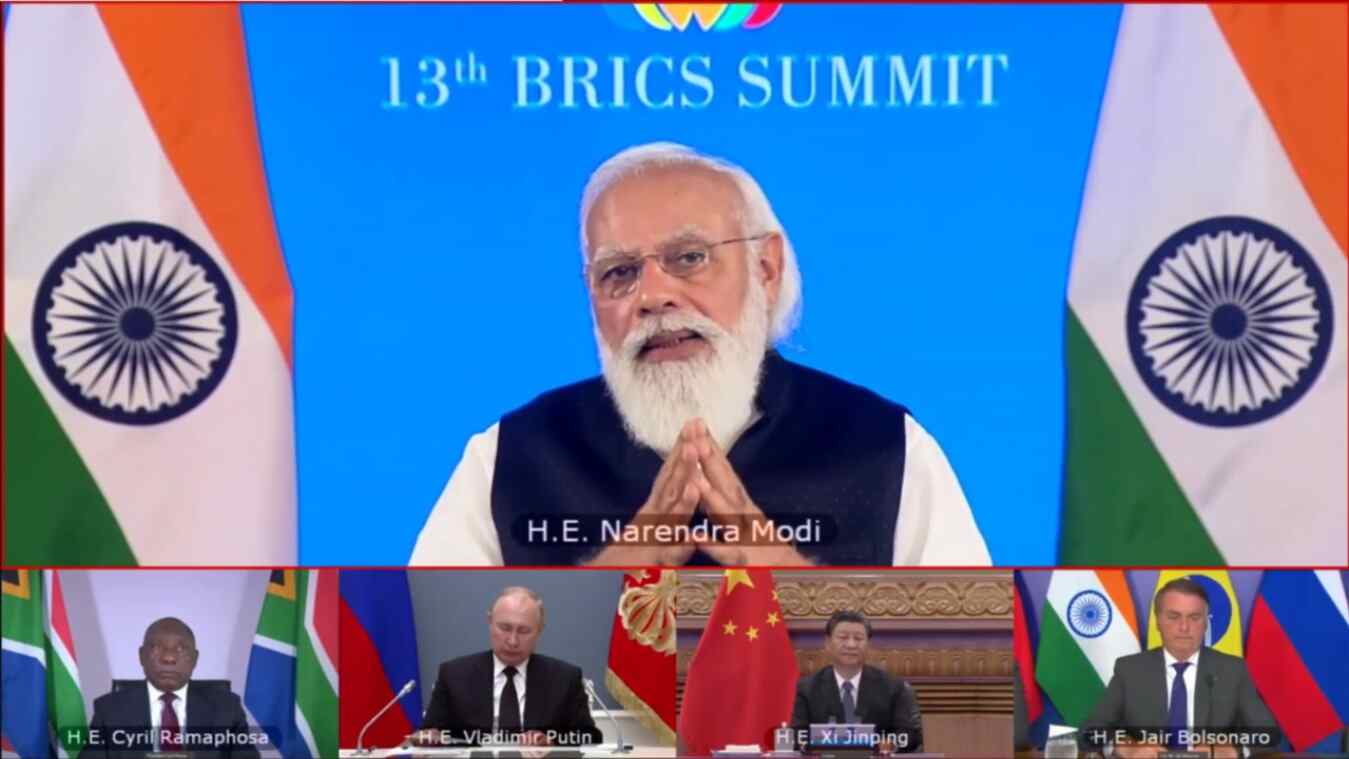A potent grouping
At the 15th year of its inception, BRICS nations have the opportunity to collaborate with each other to ride over their unique challenges

15 years after it was first envisaged as a new grouping comprising Brazil, Russia, India and China and with the addition of South Africa a decade ago, BRICS was an idea that attracted the attention of the world. These were countries whose economies were on an upward path and expected to take a higher trajectory spurring global growth.
As things stand today, China emerged as one of the leading economic powers in the world, with India and Russia following while projections of the other two, nowhere near the course predicted. Yet, the grouping is unique as it connects these five countries from different continents.
On the theme of "BRICS@15: Intra-BRICS cooperation for continuity, consolidation and consensus", India hosted the 13th Summit on September 9 with the focus on four priority areas for its Chairship — reform of the multilateral system, counter-terrorism, using digital and technological tools for achieving SDGs and enhancing people to people exchanges.
Held in the backdrop of a major change of political landscape in Afghanistan of which three countries — China, India and Russia — have a direct bearing, the Summit undertook a review of the situation while it also adopted an action plan against terrorism.
The plan is one of the principal contributions of India that has been pushing for a globally acceptable definition of terror at the United Nations for several years. The adoption brings about convergence on tackling terror among these five countries, two of whom, Russia and China, are permanent members at the UN Security Council.
In the New Delhi Declaration adopted on Thursday, the group condemned terrorism in all its forms and manifestation ''wherever, whenever, and by whomsoever committed''. The leaders recognised the threat emanating from terrorism and extremism conducive to terrorism and radicalization. While India has been a victim of terror attacks emanating from the soil of a country in the neighbourhood, the change of regime in Afghanistan with the Taliban in power adds to its concerns.
The Action Plan aims to strengthen mechanisms that exist in the form of cooperation in areas like combatting terrorism and its financing, internet misuse by terrorists, put curbs on the travel of terrorists, border controls, protection of soft targets, information sharing, capacity building and regional and international cooperation. Special emphasis was on the risk of illegal drug production and trafficking in the region.
The situation in Afghanistan figured prominently during the summit and found reflection in the final declaration emphasis on the need to address the humanitarian situation and upholding of human rights including those of women, children and minorities. While China is active in engaging with the new power structure in the country, Russian concerns of possible illegal drug trade and blowback into the country was flagged. India is wary of the Afghan soil being used by Pakistan-based terror groups who in the past have found sanctuary there.
On its part, during a meeting of the National Security Advisors of BRICS, India raised the issue of cross-border terrorism and activities of groups like Lashkar-e-Taiba and Jaish-e-Mohammed, which enjoy State support and threaten peace and security.
Cyber security
With the increasing footprint of a digital world, cyber security is an area that every country is working on and the BRICS as a group cannot be oblivious to these threats. The number of instances of attacks and crimes committed using cyberspace is real. In August, India also hosted a workshop on digital forensics, which should allow the group to build up the existing capacity as BRICS agree to fortify joint efforts by sharing information and exchanging best practices. India, as one of the leading software developing countries, enjoys a leadership role in this sphere.
Health
It is logical for countries and groups such as BRICS to attend to this ever-relevant sector for the well-being of people. The global health COVID19 pandemic accentuated the dangers lurking from the unknown and during the last two years, governments are stretching resources in dealing with the situation.
During another meeting of ministers in June, there was a call to establish and operationalise BRICS Vaccine Research and Development Centre, which was referred to by South Africa at the Summit. The idea is interesting, considering that three countries – India, China and Russia – have developed indigenous vaccines to combat the virus. In addition, India and South Africa are working in tandem at the WTO for a waiver on patents for the drug to which the US Administration under President Joe Biden extended support.
While efforts are on to combat the immediate challenge from COVID-19, a comprehensive health care system remains on the top of the agenda. Challenges in each of the BRICS countries are unique and each can pool expertise to assist one another to collectively deal with 41 per cent share of the global population.
Views expressed are personal



